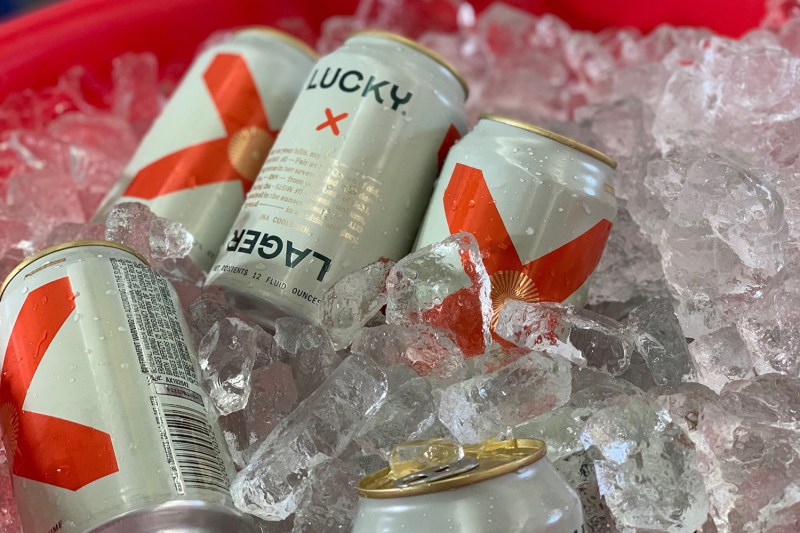
Pabst Brewing Co., the brewers of many historical regional beer brands (you know, including one of the best cheap beers ever), has brought to life yet another one.
Following four decades off the shelves, Northern California has welcomed back Lucky Lager as Pabst has revived the historic Bay Area brand.
“Here in the Bay Area, we’ve had this sleeping giant,” said Jono Stevens, Pabst national account manager. “Things have changed so much, but some things never change and the Bay Area has always been a diverse melting pot where opportunity and wealth are there but contrasted with hardship and effort.”

Originally launched in 1934 by Eugene Selvage, Lucky Lager grew into a powerhouse brand in California and the Western U.S., surging to prominence in the 1940s until its downfall began in the late 1970s. In 1962, the brand was selling more than 2 million barrels a year. The beer disappeared in the U.S. in the early 2000s but, owned by Labatt since 1968, it has survived in Canada.
To brew the new Lucky Lager, Pabst tapped 21st Amendment, a brewery with a more modern Bay Area pedigree. The light lager clocks in at 4.2% alcohol by volume, the pale straw beer hits with notes of sweet corn, toasted bread, and slight citrus. Stevens declined to discuss if other regional lagers might be revived or if brands already in the portfolio might shift to local partner brewers.
“Lucky represents sketch dreams and napkin schemes; it’s a beer meant to celebrate both the wins and failures that pave the road to success.”
Likewise, a San Francisco-based design firm, Hatch, helped design the new packaging for Lucky Lager, which will hit the shelves in five can designs, representing “Lucky” in five languages heard on the streets of San Francisco, including English, Chinese, Spanish, Korean and Vietnamese.
“Lucky represents sketch dreams and napkin schemes; it’s a beer meant to celebrate both the wins and failures that pave the road to success,” says Nicole Flores, creative director at Hatch. “Born in San Francisco, Lucky Lager is infused with the same drive, where “X” marks the spot for determination, imagination, and desire that make the Bay Area so alluring. Such qualities are inherent to the beer and to those in the Bay who drink it.”
Lucky Lager is just the most recent of the “local legend” beers Pabst has resurrected or acquired. Along with Pabst Blue Ribbon, brands like Lone Star, Stroh’s, Olympia, Rainier, Old Style, Schlitz, Schmidt’s, Pearl, Blatz, Stag, Schaefer, and National Bohemian all sit under the Pabst portfolio. Those regional legacy beers all maintain a certain cache as light lagers despite the rise of craft beer. Perhaps it’s the nostalgic hip factor or the “independent” ownership, but Pabst wants them to be local platforms, both in the brand and opportunity to give back to the community.
“We’re very lucky we do have a number of those American classics,” Stevens said. “They’re these wonderful brands with powerful local connections that seem to transcend moments in life. Lucky Lager, as an example, it’s steeped in history and legacy, but reimagined for the next generation.
“It’s a privilege to have these brands at our disposal, you can’t just dust the cans off, you have to find brands that still fit with consumers.”
Now, with Lucky Lager, Pabst hopes to retap the fortunate ideals of San Francisco, from the high hopes of the gold rush to today’s Silicon Valley tech boom.
“San Francisco is a town where anyone with a persevering mindset and dedicated spirit can get ‘lucky’ and strike it big,” said Matt Bruhn, general manager at Pabst. “We want Lucky Lager to be your reward for a hard day’s work.”


